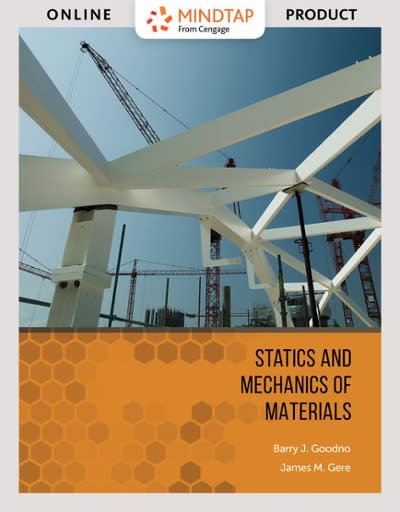Question
I am taking Constitutional law this semester and we are currently studying the 5th & 6th amendments.I just finished doing a quiz.I was wondering if
I am taking Constitutional law this semester and we are currently studying the 5th & 6th amendments.I just finished doing a quiz.I was wondering if someone could please take a look at it and let me know If I did ok or not.I would really appreciate it. We are reading from the Understanding Criminal Procedure volume 1: Investigation 6th edition.
Question 1
After riots broke out in the city of Underworld, many shops had been burned and looted. Goods of all kinds were in piles or strewn about the sidewalk. In the mid-afternoon of June 6, 2016, Mr. Torrid was walking along the street when he paused in front of Lava's Appliance Store. He picked up a 72-inch flat panel television set the was lying on the sidewalk and started to walk off quickly. Fire investigator Sleuth, who was standing in front of the shop, rushed after Torrid and arrested him. Torrid, an indigent was charged with grand larceny, a felony carrying the maximum of two years imprisonment and a $5,000.00 fine. At his arraignment, the judge advised Torrid of his right to have counsel appointed. Torrid, however, told the judge that he wanted to represent himself and waive his right to counsel. The judge then questioned Torrid at length about his refusal of appointed counsel; he told the judge the reason was because he didn't trust lawyers. The judge did not find Torrid's reason for representing himself to be persuasive and appointed an attorney to represent him. Torrid is subsequently convicted and sentenced to 2 years imprisonment. He appeals the conviction. The appellate court should:
A.affirm the conviction because Torrid's waiver of counsel was voluntary
B.affirm the conviction because Torrid's waiver of counsel was knowing and intelligent
C.reverse the conviction because formal adversary proceedings had commenced prior to the waiver of counsel
D.none of the above
Question 2
In which of the following U.S. Supreme Court cases did the Court rule that an accused's valid waiver of her Miranda right to counsel serves, as well, as a valid waiver of her Sixth Amendment right to counsel?
A.Patterson v. Illinois
B.Michigan v. Harvey
C.Brewer v. Williams
D.Edwards v. Arizona
Question 3
Shawn Static is arrested and is placed into a physical line-up to see if witnesses can identify him as the pyromaniac. This line-up violates either Miranda or the 5th Amendment due process provision if:
A.Investigators fail to give Static his Miranda rights and obtain a waiver.
B.It is a "show-up" line-up conducted right after the crime was allegedly committed and near the place of the alleged crime.
C.Static refuses to participate in the line-up.
D.In a line-up with 5 other people, Static is at least 6 inches taller than any of the others.
Question 4
Shorty Circuit has been indicted for criminal mischief involving fire and is not in custody. He has not asserted his right to counsel. Fire investigator Rimgale wants to talk to Circuit about the criminal mischief, plus another crime, arson. As to the arson, Circuit has not been indicted, has not made an initial appearance, and the prosecutor has not filed a complaint. Which of the following is a true statement?
A.Rimgale must get a waiver of Miranda rights before he can question Circuit about either offense.
B.Rimgale must get a waiver of 6th Amendment rights before he talks to Circuit about the arson.
C.Rimgale must get a waiver of 6th Amendment rights before he talks to Circuit about the criminal mischief.
D.Rimgale must get a waiver of 6th Amendment rights before he talks to Circuit about either the criminal mischief or the arson.
Question 5
The Constitutional right to counsel, which requires that defense counsel be provided for poor defendants, extends to what types of cases?
A.capital offenses,
B.capital offenses and felonies in the state courts,
C.all cases, including misdemeanors that may result in imprisonment
D.all cases, excluding those with fines less than $1,000
Question 6
The Due Process Clause requires the exclusion at trial of evidence of a pretrial identification of the defendant if, based on the totality of the circumstances, the police procedure used to obtain the identification was:
A.unnecessarily suggestive,
B.conducive to mistaken identification
C.both a & b
D.none of the above
Question 7
The exception to Miranda is
A.Plain view
B.Hot pursuit
C.Good faith
D.None of the above
Question 8
Toasty is arrested and charged with negligent burning. He claims innocence and requests an attorney. The request is denied and Toasty is found guilty. The maximum penalty for negligent burning is $100.00 and 3 months in jail. Toasty is sentenced to 3 months in jail which he is allowed to serve on weekends in the county detention center. Toasty claims his constitutional rights have been violated. Is he correct?
A.no, because his actual sentence was only 3 months
B.yes, because Toasty was denied the right to counsel
C.no, because the maximum penalty for negligent burning was $100.00
D.none of the above
Question 9
Which of the following is an exception to the right to counsel?
A.defendant has waived right to counsel in previous trial
B.defendant has prior felony conviction
C.defendant faces only fines
D.defendant intends to plead guilty
Question 10
____________ is the linchpin in determining the admissibility of identification testimony.
A.reliability
B.highly suggestive
C.irreparable misidentification
D.all of the above
Step by Step Solution
There are 3 Steps involved in it
Step: 1

Get Instant Access to Expert-Tailored Solutions
See step-by-step solutions with expert insights and AI powered tools for academic success
Step: 2

Step: 3

Ace Your Homework with AI
Get the answers you need in no time with our AI-driven, step-by-step assistance
Get Started


